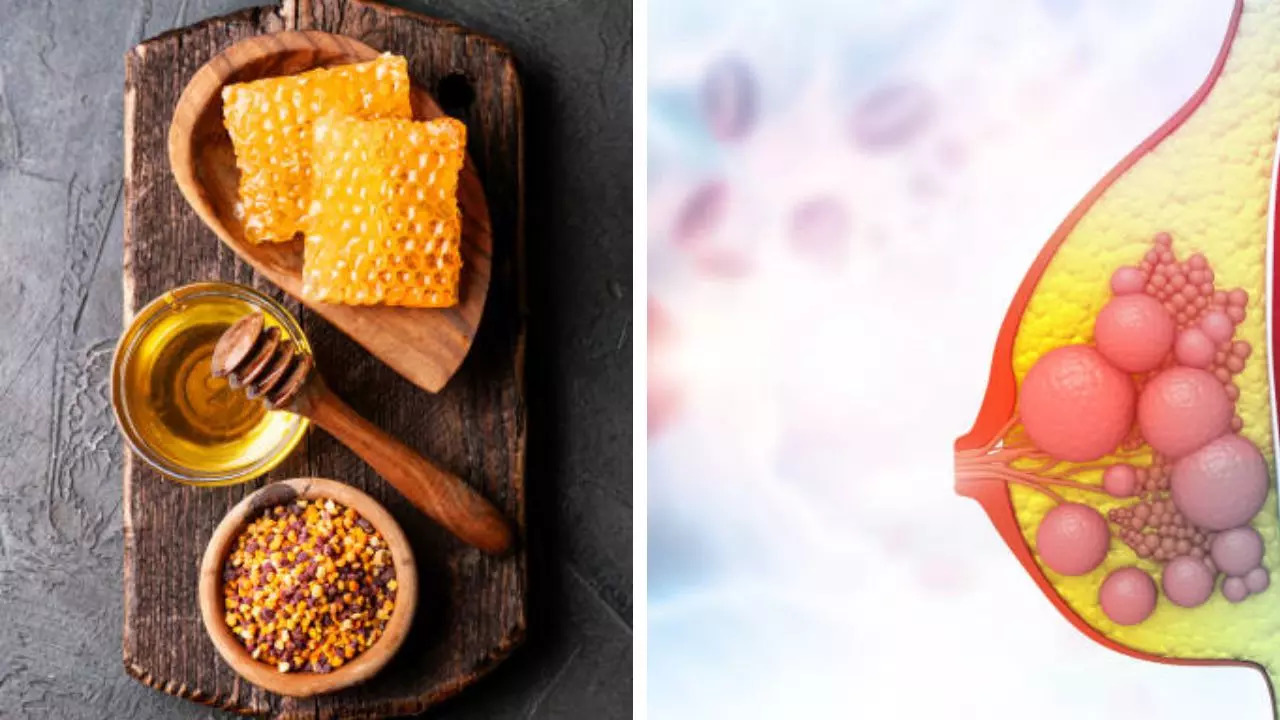The antibacterial properties of Manuka honey distinguish it from traditional honey.
Manuka honey, an antibacterial and antioxidant with incredible health properties, could help treat and even prevent breast cancer, according to a new study. Scientists at the University of California, Los Angeles, found that manuka honey contains compounds that can significantly reduce tumor growth in the most common forms of the disease by at least 84 percent.
Manuka honey is a honey native to New Zealand and is produced by bees that pollinate the flower. leptospermum scoparium – commonly known as the Manuka bush.
Why is Manuka honey more effective than traditional honey?
According to scientists, Manuka honey’s antibacterial properties distinguish it from traditional honey. It contains methylglyoxal as an active ingredient, which is likely also responsible for its anti-cancer effects. “The findings provide hope for the development of a natural, less toxic alternative to traditional chemotherapy,” said Dr. Diana Marquez-Garban, an assistant professor of medicine at the University of California’s David Geffen School of Medicine.
“While more research is needed to fully understand the benefits of natural compounds in cancer therapy, this study lays a solid foundation for further exploration in this area,” he added.
Manuka is rich in antimicrobial, antioxidant and healing properties, and is packed with compounds such as flavonoids, phytochemicals, complex carbohydrates, vitamins, amino acids and minerals. “These compounds have been shown to have anticancer potential at the molecular level by inhibiting pathways activated in cancer that induce tumor cell proliferation, growth and metastasis,” said researchers from UCLA Health’s Jonsson Comprehensive Cancer Center.
How was Manuka honey used for breast cancer treatment?
Experts investigated whether Manuka honey can block estrogen receptors and function as an effective nutrient (a nutrient and a drug) against hormone-sensitive breast cancer.
A series of experiments were therefore carried out on both human and mouse breast cancer cell lines, representing two of the most common types of the disease. Manuka honey (MGO 550+) was found to be able to reduce tumour growth in mice by 84 per cent compared to the control group, without affecting normal breast cells or causing any significant side effects.
Honey also slowed the rate at which cancer cells copied their DNA and divided, without affecting the growth of normal cells, suggesting it could specifically target cancer cells. Researchers even found that manuka honey, a popular breakfast accompaniment to cereal and toast, helps induce breast cancer cell death and improves the effectiveness of existing treatments.
“This significant inhibition of tumor progression underscores the potential efficacy of honey as a treatment for cancer prevention or treatment,” the authors said. “The findings suggest that Manuka honey could become a natural supplement or even a stand-alone treatment for estrogen receptor-positive breast cancer, particularly for patients experiencing resistance to traditional therapies.”
Why are alternative cancer treatments sought? further?
Time and again, experts have called for an “urgent need” for alternative treatments to help prevent relapses and improve long-term survival from breast cancer, the second most common cancer worldwide, with more than 2,296,840 new cases in 2023 alone.
According to doctors, about half of all breast cancers occur in women with no other specific risk factors apart from sex and age. However, among young women, rates are increasing among younger premenopausal women aged 30 to 49. Experts believe it may be due to lifestyle changes, which lead to genetic mutations.
Existing options, such as chemotherapy and endocrine therapy, are effective but toxic and have numerous side effects, including fatigue, nausea and vomiting, mouth sores, thinking and memory problems, and even infertility.
They can also cause endocrine resistance when cancer cells develop ways to evade treatment.
Disclaimer:
The information contained in this post is for general information purposes only. We make no representations or warranties of any kind, express or implied, about the completeness, accuracy, reliability, suitability or availability with respect to the website or the information, products, services, or related graphics contained on the post for any purpose.
We respect the intellectual property rights of content creators. If you are the owner of any material featured on our website and have concerns about its use, please contact us. We are committed to addressing any copyright issues promptly and will remove any material within 2 days of receiving a request from the rightful owner.

